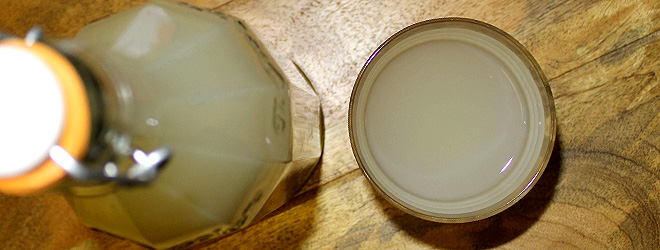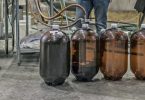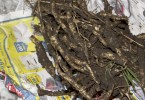Where would we be without google.* You ask it to find an interesting beer recipe and it obliges with ‘lubisi’** – a Ugandan beer which, if you’re making in the traditional way, requires a big pit, sorghum and some sort of magic juicing grass. Intrigued, you return to google to enquire how you might make it in your own, small kitchen… but the mighty search engine hasn’t got a clue.
Time to make it up.
Apparently lubisi brewers dig a big pit which they fill with loads of their special Ugandan bananas to ripen before peeling and squeezing out the juice – an unspecified grass is deployed in the squeezing bit. It somehow traps the solid waste allowing the juice to run free. Over in Bath the lawn is looking a bit shabby at this time of year so we jettison the grass method, instead boiling our meager hoard of ten bananas in two litres of water. We also added 100g of sugar to compensate for the juice dilution and summon the potato masher to banish all lumps before straining into a bucket.
Back in Uganda they add the local grain soughum to give it a beery taste. The closest thing we have lurking in the kitchen cupboard is millet which we spread out on a tray and roast in the oven until deep brown.
Bananas contain natural wild yeasts which quickly set to work on the equally natural sugars in Africa’s banana breweries. Seeing as we boiled those yeasts to death we add a sprinkling of dried yeast when the liquid cools down.
The beer is a quick ferment, low alcohol job – much like ginger beer – so we give it 36 hours before lifting the lid of the fermenting bucket and sampling. It tastes foul. It gets bottled regardless and shoved in the fridge for another 24 hours but, if anything, it tastes even worse the next day. Like a weetabix soaked in emulsion paint, stirred with a banana and topped with marmite.
Of course, this could be exactly how it is meant to taste, but we doubt it. So until google or anyone else can provide more answers we’ll be leaving lubisi to the Ugandans.
*Down the library probably
**Similar beers are made in Tanzania and Kenya where it’s known as ‘urwaga’







